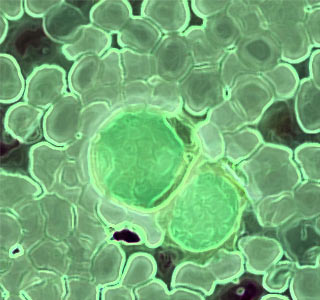
It may not be certain to find a complete cure of acute myeloid leukemia in first complete remission. Majority of younger adult patients with newly diagnosed AML may have to enter the first phase of complete remission after their initial chemotherapy. On the other hand, it is seen that a large number of patients may even experience a relapse.
The study investigators have stated that, “Allogeneic SCT after myeloablative conditioning [high-dose radiation and/or chemotherapy given to destroy normal and cancerous cells in the bone marrow prior to infusion of donor stem cells] is a curative treatment option for younger patients with AML in CR1. However, concerns regarding allogeneic SCT–related toxicity, and questions regarding its benefit, limit its use for patients who have attained an initial remission.”
They have further also commented that, “Our primary finding is that the totality of the prospective trial data indicates statistically significant RFS and overall survival benefit with allogeneic SCT for adult AML in CR1. This conclusion is supported by a variety of sensitivity and subgroup analyses…. Additionally, our analyses indicate that allogeneic SCT benefit likely varies by AML cytogenetic risk. We document significant RFS and overall survival benefit for allogeneic SCT in intermediate- and poor-risk AML, and a lack of significant RFS or overall survival benefit for good-risk AML.”
A meta-analysis was conducted to analyze relapse-free survival and overall survival benefit of the treatment in the first level of complete remission. This analysis was evidently done on the patients with good, medium or poor-risk AML. The experts seemingly detected about 24 trials which seemed to assess the difference between the patients receiving allogeneic SCT vs. the ones receiving non-allogeneic SCT therapies.
These findings are believed to be useful in guiding appropriate clinical decision making and planning for future trials as well.
This study was published in the JAMA issue.
